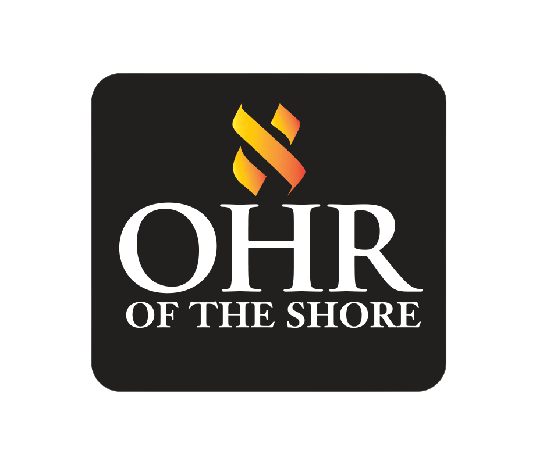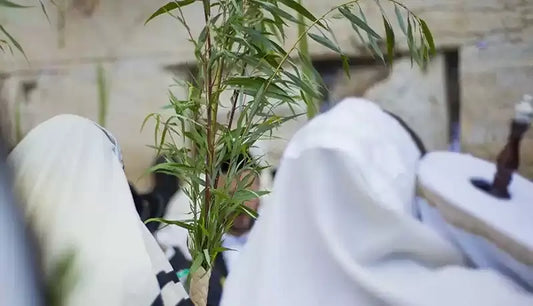Before entering the sukkah, one should have in mind that Hashem commanded us to sit in the sukkah to remember that he surrounded our ancestors with the Clouds of Glory when they left Mitzrayim and journeyed in the desert.
Throughout Sukkot, one should view the sukkah as his house. Eating, drinking, sleeping, relaxing, etc. should all be done in the sukkah, as one fulfills a mitsvah any time one of these activities is performed in the sukkah.
What foods are required to be eaten in the sukkah?
Only bread or mezonot made from one of the five grains - wheat, oat, barley, spelt, and rye - needs to be eaten in the sukkah. While other foods may be eaten outside of the sukkah, it is praiseworthy that all food and drink, even water, be consumed in the sukkah.
Rice and rice products, even though their beracha is mezonot, do not need to be eaten in the sukkah.
If I am only eating a small amount, do I need to go to the sukkah?
Even when eating bread or mezonot, if one is eating a very small amount (less than a "k'betsah” - the volume equivalent of an egg), it does not need to be eaten in the sukkah.
If one begins eating a bread meal (of at least a k'betsah), they may not eat or drink even the slightest amount of food or drink outside of the sukkah during the meal. Even food that was already put in one's mouth, should be swallowed in the sukkah before exiting.
How much do I have to eat to recite the beracha of leshev ba'sukkah?
The beracha is only recited when eating at least 54g of bread, or when eating 216g of mezonot (excluding rice). Hacham Ovadia was of the opinion, that the beracha should be recited even when eating only 162g of mezonot.
Being that sitting in the sukkah is a time-bound commandment, women are exempt. They can get a misvah if they sit in the sukkah, however, they do not recite the beracha.
When should I recite the beracha of Leshev Ba'sukkah?
Many have the custom of reciting the beracha before hamotzi. Others recite hamotzi first and then the beracha of Leshev Ba'sukkah. Either way, the beracha of Leshev Ba'sukkah should be said while standing.
On Shabbat and Yom Tov, the beracha is incorporated as part of the kiddush before the bread meal. Since the kiddush is the beginning of the bread meal, as it must be recited at the location of the meal, the beracha is said then.
What if I forgot to recite the beracha before beginning the meal?
As long as one is still in the middle of their meal, even if they are eating dessert or drinking, they may still recite the beracha. However, if they are not eating or drinking anymore, even if they have yet to recite Birkat Hamazon, the beracha can no longer be said.
Can I pray early on the first two nights of Sukkot?
On the first two nights of Sukkot, there is a requirement to eat bread in the sukkah. This is derived from Pesah; just like on Pesah night there is a mitsvah to eat matsah, so too on Sukkot, there is a mitsvah to eat bread in the sukkah. Since this mitsvah is a Biblical one, it cannot be fulfilled until after tset hakochavim. Additionally, similar to Erev Pesach, one should not eat even a small amount of bread or mezonot foods from the beginning of the 10th hour of the day (a little before 3:30 p.m. in the NY/NJ area). One may still eat a small amount of fruits, vegetables, or other non-satiating foods.
How much bread do I need to eat on the first two nights of Sukkot?
One should eat at least a k'zayit - approximately 1 oz. of bread - within a time frame of four to five minutes, similar to how one eats a k'zayit of matzah within that time frame. According to some opinions, a little bit more than a k'betsah of bread should be eaten, with each k'zayit being eaten within said time frame.
Throughout the seven days of Sukkot, a k'zayit is not required to be eaten in the sukkah, nor is the beracha recited when only eating a k'zayit. On the first two nights, however, even a k'zayit must be consumed in the sukkah, and the beracha is recited.
What should I do if it's raining on the first night of Sukkot?
Preferably, one should wait a little bit to see if the rain stops. If not, one may eat inside. However, if the rain stops before they go to sleep, then they would be required to eat at least a k'zayit, and preferably a k'betsah in the sukkah.
If one did not eat in the sukkah on the first night of Sukkot, a Sheheyanu is not recited before eating in the sukkah in the morning, even though one is eating in the sukkah for the first time.
What if I feel a light drizzle?
One should assess the amount of rain falling in his sukkah. If that amount of rain were falling in their house, would they relocate elsewhere? If they would, then at that point they are exempt from the sukkah.
If one is starting to eat, and there is only a slight amount of rain, although they are required to sit in the sukkah, the beracha is not recited. However, regarding sleeping, even a small amount of rain would absolve one of the requirement to sleep in the sukkah.
What if it's currently not raining, but water is still dripping into the sukkah?
If the amount of water dripping in would be enough to move elsewhere, one is not required to sit in the sukkah. Conversely, if one has thick schach and the rain is not entering their sukkah, they would still be obligated to eat in the sukkah.
What if I already moved inside and then it stopped raining?
If one already sat down to eat inside because of rain, they are not obligated to return to the sukkah. If one wishes to return to the sukkah anyway, a new beracha should be recited. Similarly, if one went to sleep indoors due to rain, they are not required to move back into the sukkah in the middle of the night.
Do I have to remove the awning when the rain stops?
One who covered their sukkah with an awning when it started raining, must get up and remove the awning when the rain stops, even though they are in the middle of eating. In a case where one continued to eat in the sukkah under an awning, a new beracha is not recited after it stops raining.
What if my Sukkah is full of mosquitos?
One who is experiencing discomfort from the Sukkah, i.e., there is an excessive amount of flies or mosquitos, is exempt from Sukkah. If it is cold outside, one should wear warm clothes and eat in the Sukkah. One can even recite the beracha if bundled up properly. Regarding sleeping, one should also sleep in the Sukkah with warm blankets. If, however, one is afraid of getting sick, they may sleep inside.
Are children required to sit in the sukkah?
Boys from the age of five or six years old, depending on maturity, are required to sit in the sukkah. As the misvah of hinuch is incumbent upon the father, if he sees his son eating out of the sukkah, he should gently remind him to eat in the Sukkah.
Although the mother does not have this obligation of hinuch (unless there is no father present), it is still not permitted for her, or anyone else, to instruct or set up the child to eat hamotzi or mezonot foods out of the sukkah.
Can I travel to a place where I will not have a sukkah?
One who must travel to a different city for business on Sukkot, and has no sukkah available to him where they are staying, is exempt from the mitzvah of sukkah. However, one who is traveling for vacation or pleasure is still obligated to eat and sleep in the sukkah.
I forgot Yaaleh V'yavo in Birkat Hamazon, do I have to repeat it?
On the first and second nights of Sukkot, since there is an obligation to eat bread according to all opinions, if one forgets Yaaleh V'yavo, Birkat Hamazon must be repeated. During the daytime and the rest of the holiday, in deference to the minority opinion which does not require one to eat bread, Birkat Hamazon is not repeated. However, if it was raining on the first or second night and one ate inside, Birkat Hamazon is not repeated. For women, being that they are not obligated to sit in the sukkah, there is no difference between the first two nights and the rest of Yom Tov, and Birkat Hamazon would not be repeated.
On Shabbat, according to all opinions, one should eat bread for the first two meals, therefore if one forgets to say Retseh, they should repeat Birkat Hamazon. By Seudah Shlishit, where again there is a minority opinion that does not require bread, Birkat Hamazon is not repeated.




